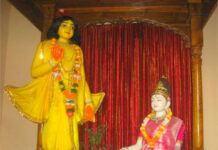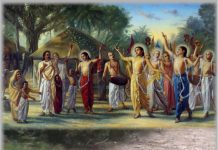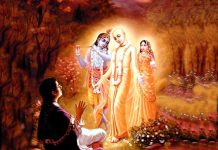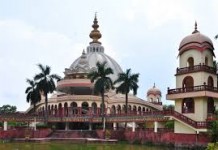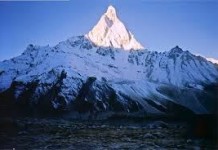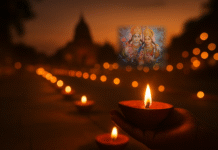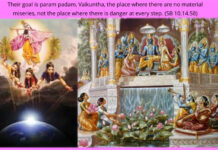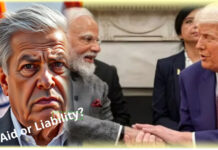I was surprised when I came across a politician’s comment on Hinduism. He said that the word Hindu does not figure in Vedas and added that the name of our country is Bharat. “Even when we do puja we say Bharat Khande Jambu Dweepe. The name Hindustan does not figure. This country is called Bharat. Constitutionally our nation is called Bharat. We are the residents of Bharat and we are Bharatiya,” he said. Of course, he did not forget to include that the RSS uses Hinduism for political purpose.
I hardly see politicians speak sense when it comes to religion as for most of them, religion is simply a tool for wining votes. Generally they are afraid of disclosing even their own religious sentiments for fear of losing public support, which, in the absence of education related to the science of God, tends to lean towards the so-called secularism, which, instead of respecting all religions respects no religion. Obviously, the above statement by Digvijay Singh, a mouthpiece of the Congress party, is politically motivated but nonetheless, has some technical truth in it. I don’t intend to examine here his statement regarding RSS.
First of all, the word “religion” is not the accurate translation of the word “dharma”. Religion means a kind of faith or belief, but Dharma is not that. Dharma is an inherent, inseparable property of a living entity. The closest and most accurate meaning of the word “dharma” is “occupational duty”. Srila Prabhupada, the founder of ISKCON, gives the example of heat and fire. Heat cannot be separated from fire, and similarly, a living entity cannot be separated from his tendency to serve. This service attitude is living entities’ eternal dharma, which manifests in different forms and under different names and concoctions, depending on their level of consciousness. Some like to serve their children, some like to serve their society, some country, humanity, and some others try a dog or cat. In all the cases, the tendency is to serve because it is our in-built nature, dharma. All attempts to separate people from dharma have failed in the past and will invariably keep failing. This is only natural. This is also the message of Bhagavad-gita although it goes much beyond worldly dharma and explains the very essence of human life. Ok, that’s about the world “religion”.
Talking of Hinduism, any sincere student of Vedic philosophy would know that the word Hindu is not mentioned in the Vedas. Even Bhagavad-Gita, the most important book for today’s Hindus, does not mention the word Hindu. And yet, modern scholars have established special faculties to study Hindu
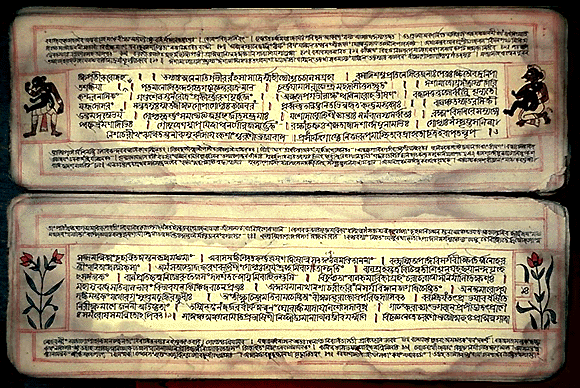 religion and they all identify it with studying Vedas, Upanishads, and Puranas. Surprisingly, many renowned Hindu religious leaders in the past and present, who are supposed to have read and understood Vedas, have also talked of Hinduism as a religion, have believed themselves to be Hindus, and have even fought for it. This shows that they are confused about what the word religion means. And they are considered religious icons! This is possible only in Kaliyuga.
religion and they all identify it with studying Vedas, Upanishads, and Puranas. Surprisingly, many renowned Hindu religious leaders in the past and present, who are supposed to have read and understood Vedas, have also talked of Hinduism as a religion, have believed themselves to be Hindus, and have even fought for it. This shows that they are confused about what the word religion means. And they are considered religious icons! This is possible only in Kaliyuga.
The question is, if there is no mention of “Hindu” in the Vedic scriptures, who the present Hindus actually are? Is Hinduism really not a religion?
In a lecture in New York on March 5, 1975, Srila Prabhupada says:
This is creation by our neighbor, Indian neighbor, the Middle-east Muhammadans. They gave the name, Indian people, as “Hindu.” “Hindu” means… There is one river, Sindhu. The Muhammadans, they pronounce sa as ha. So those who were on the other side of the Sindhu River, Hindu River, they were called Hindus. But actually Vedic religion is neither for Hindus nor for Christian nor for… It is meant for the human being.
It is understood that the same Sindhu river, pronounced as Hindu by the Muhammadans, was called Indus by the Western invaders, and that is how the words “India” and “Indians” came into existence. In other words, Bharata-varsha, or Bharat, became known as Hindustan 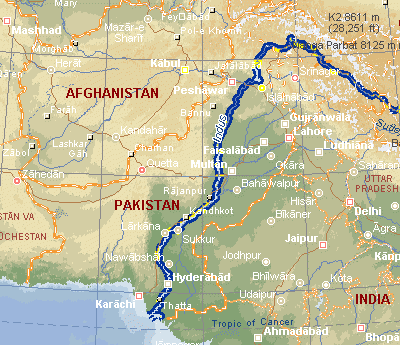 due to Muhammadan influence and later on, as India by English speakers. Subsequently, the language used by the Hindus became known as Hindi language, although, as most of us know, originally it was Sanskrit that was spoken by ancient Bharatiyas.
due to Muhammadan influence and later on, as India by English speakers. Subsequently, the language used by the Hindus became known as Hindi language, although, as most of us know, originally it was Sanskrit that was spoken by ancient Bharatiyas.
The people of Bharata-varsha, pronounced “Bharat-varsh” in Hindi, and generally known as Bharat or India, are the most ancient civilization on the earth. Millions of years ago, there was nothing like many religions and many countries as we see today. Then, the earth was known as Ilayati-varsha. Later on it became known as Bharat-varsha in the honor of the emperor Bharat maharaj, the son of Vrshabh-dev. As per the Vedic scriptures, Bharat-varsh or planet earth, is a part of Jambu-dvipa, which consists of a much bigger portion of the universe. Here, the Sanskrit word “varsha” means a division of the planet separated by certain mountain ranges.
Does this make the present day Hinduism and the ongoing discussion for its importance irrelevant? My answer is No. The same goes with Islam, Christian, Jews, etc.. Every religion has its own importance according to time, place and circumstance. However, as we know, the present day Hindu dharma, called in previous ages as Vedic dharma, Sanatan dharma, Varnashram dharma, or Bhagavat dharma, is the oldest of all. This can be verified from the ancient Indian scriptures wherein predictions of various new religions in this age are also visible. In fact it goes much beyond what ordinary people, including most Hindus, think of it. So, yes, although the word “Hinduism” does not figure in the Vedas, it, nonetheless, holds equal value so far its roots and originality are concerned. People need to understand that Hinduism is not the hodege-podge that we hear of these days from many so-called Hindu leaders. Although names are important, more important than names is the values taught by a particular dharma.
Having said this, it would be more appropriate to know Hinduism by its original name, i.e. Sanatan dharma, Varnashram dharma, or Bhagavat dharma. Sanatan dharma means living entities’ eternal occupation, or service to God, Varnashram dharma refers to the process of realizing God by living in a civilized society based on qualities and activities of people, and Bhagavat dharma means the process that teaches one how to love God. None of these terms talk about any particular species, birthright, or geographical boundaries. Unless we understand the principle that the eternal occupation of all living entities is to render loving devotional service to the Supreme Lord, called bhakti in Sanskrit, the chances of peace and happiness in this world are remote to the extent of being nil. This is because service to God, whichever names one may call Him, is our eternal occupation, and that is our real dharma.
Hare Krishna


